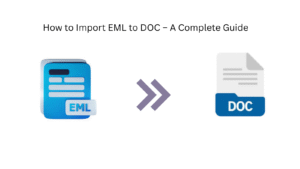
Many families exploring support options for autism in New Mexico are introduced to ABA therapy early on. Short for Applied Behavior Analysis, ABA is a common therapy approach for individuals with Autism Spectrum Disorder (ASD). Clinics nationwide use this method to help clients build meaningful life and social skills.
If you’ve recently started looking into services, you might have searched for an ABA clinic or wondered what actually happens during autism therapy in New Mexico. This article will walk you through what to expect at a clinic, how therapy is delivered, and how the process supports autistic individuals.
What Happens at an ABA Clinic?
An ABA clinic is a structured environment where trained professionals provide therapy based on behavior analysis. These clinics often work with children and teens with autism to help them learn communication, independence, and social interaction skills.
Each client receives a personalized therapy plan created by a Board-Certified Behavior Analyst (BCBA). The plan is based on an assessment identifying current strengths, challenges, and long-term goals.
Sessions typically happen several times a week. Some clients may visit daily, while others attend a few times a week, depending on their needs. Clinics are designed to be safe and predictable, which is important for individuals who thrive with structure.
The Therapy Process
Therapy at a clinic that offers ABA is broken into small, achievable steps. Here’s what the general process looks like:
- Assessment: A BCBA (Board Certified Behavioral Analyst) meets with the client and family to understand behavior patterns, communication skills, and daily routines.
- Plan Development: The therapist sets clear goals, such as asking for help, waiting in line, or brushing teeth.
- Skill Building: Behavior technicians work one-on-one with the client, using repetition and rewards to teach each step.
- Progress Review: The team collects data in every session and updates the plan as the client grows.
Behavior specialists often use tools like picture cards, toys, or social stories to teach skills in a way that makes sense to the individual. Sessions are adapted to each person’s age, development level, and interests.
Who Provides the Therapy?
An ABA clinic typically includes the following professionals:
- BCBAs: These are certified clinicians who oversee each client’s plan, train team members, and adjust therapy based on data.
- Behavior Technicians: These team members run the daily therapy sessions. They work directly with the client and report progress to the BCBA.
Autism therapy in New Mexico might involve collaboration between the therapy team and the family. Many clinics offer parent training so caregivers can use the same strategies at home, which helps reinforce learning across settings.
Why Families Choose ABA
Families often choose ABA at a clinic when they want consistent therapy in a controlled environment. Unlike school-based services, clinics focus entirely on behavioral development and skill-building. Sessions happen without classroom distractions and can be adjusted quickly as the client’s needs change.
Parents looking for autism therapy New Mexico” may also find that clinics offer more flexibility in scheduling and more intensive therapy hours. Some clinics even provide half-day or full-day programs for early learners.
How Clinics Involve Families
Effective autism therapy in New Mexico includes caregiver participation. Clinics may schedule regular meetings to share updates, review progress, and explain how to handle behavior at home or in public settings. Some also provide materials or homework to practice between sessions.
Involving families improves outcomes and helps caregivers understand the goals behind the therapy and how to support them.
What to Ask When Choosing a Clinic
If you’re considering an ABA clinic, it’s helpful to ask:
- Is the clinic staffed by certified BCBAs?
- How often are therapy plans updated?
- What does caregiver training look like?
- Are services offered in-home or in the community as well?
- What types of insurance are accepted?
Asking these questions can help you find a clinic that aligns with your family’s needs and schedule.
How ABA Supports Daily Life
ABA therapy is about learning skills that apply to real life. This might include:
- Asking for a break instead of ‘acting out’
- Waiting patiently for a turn
- Getting dressed without help
- Starting a conversation with a peer
Each of these skills is broken into small steps and taught gradually. Over time, these steps help individuals with autism gain more independence and confidence.




